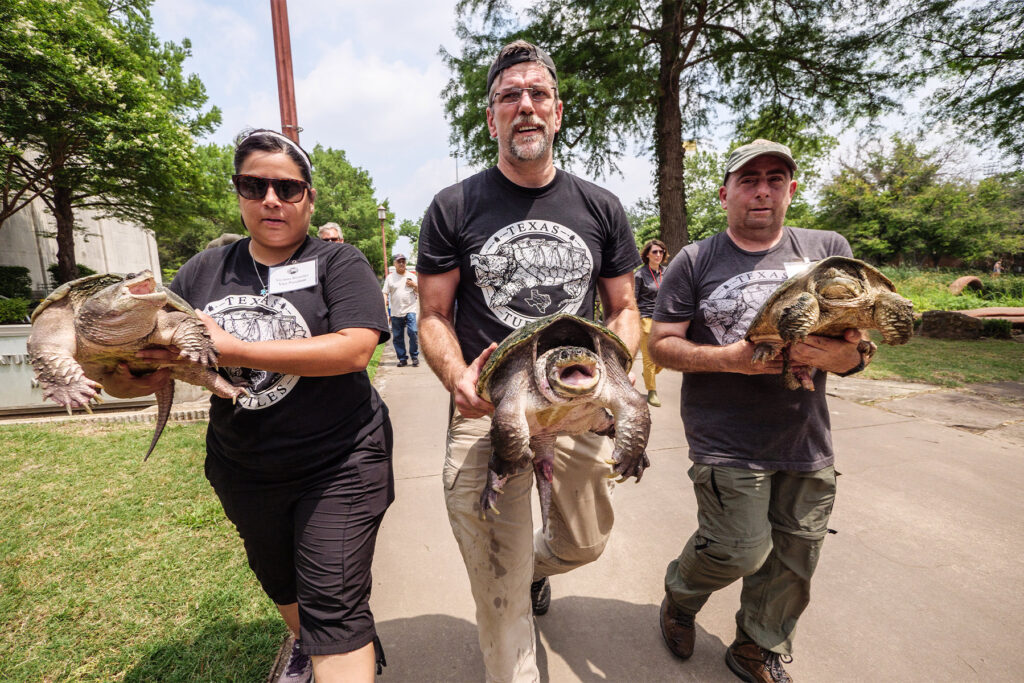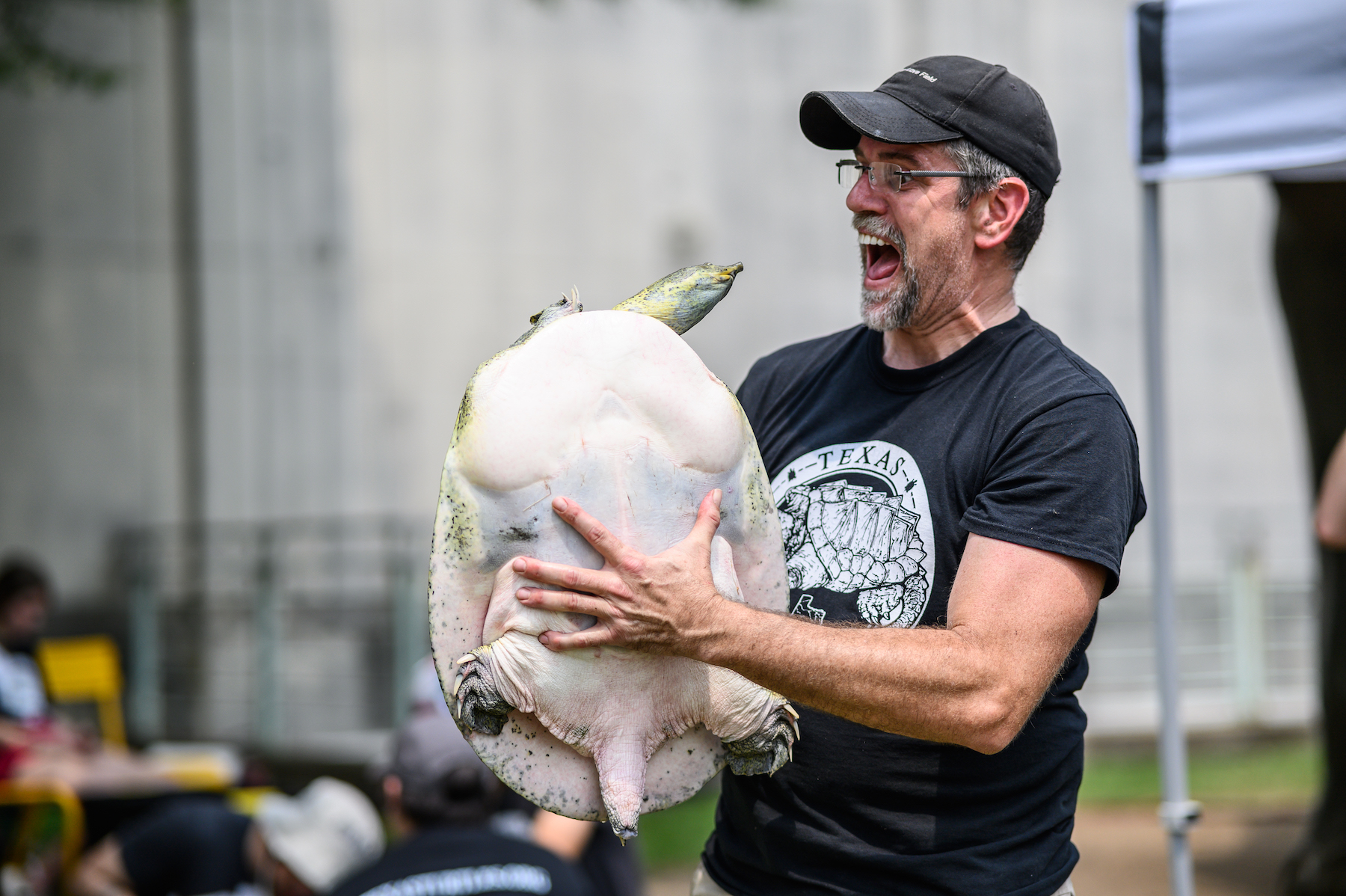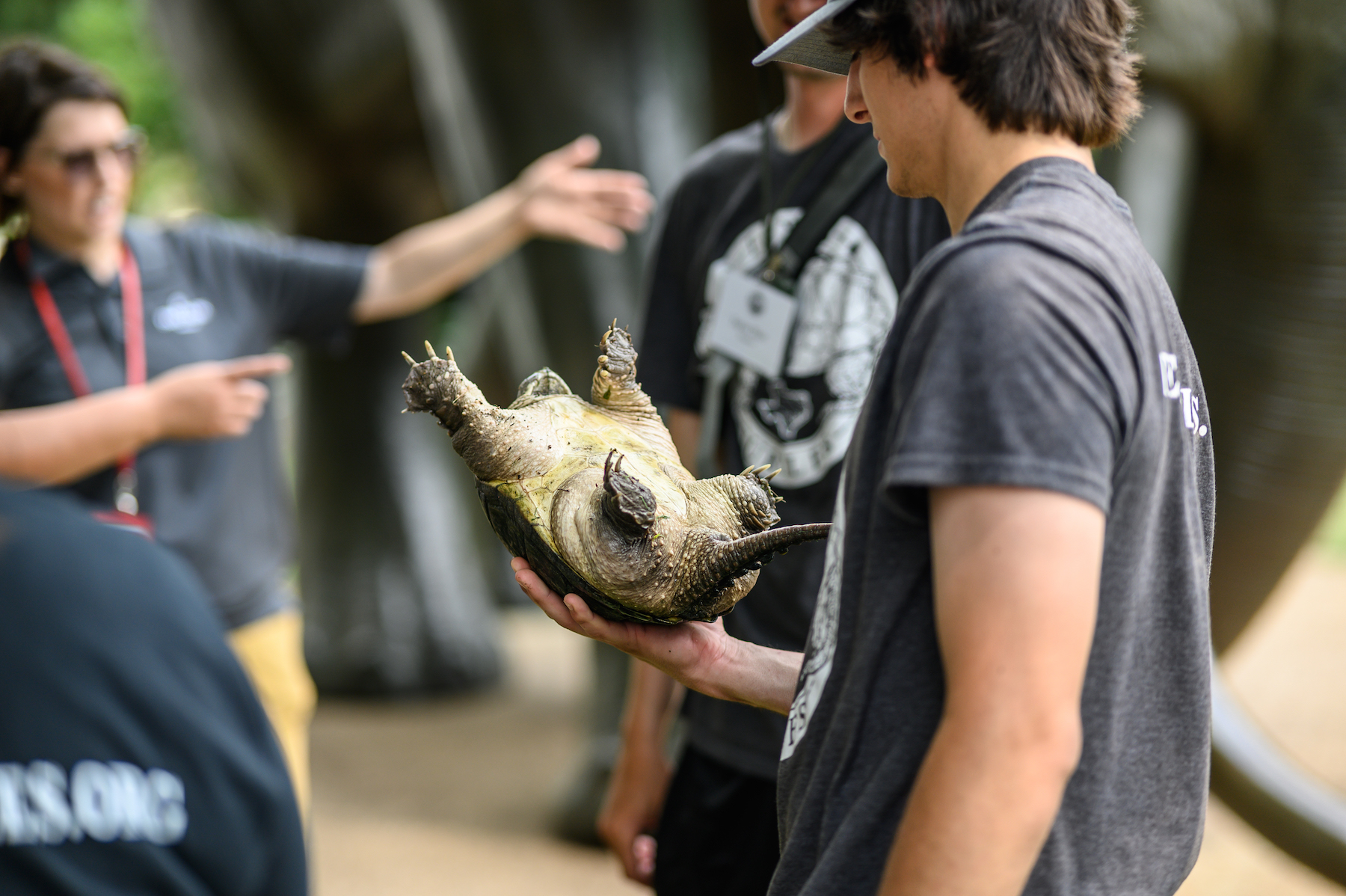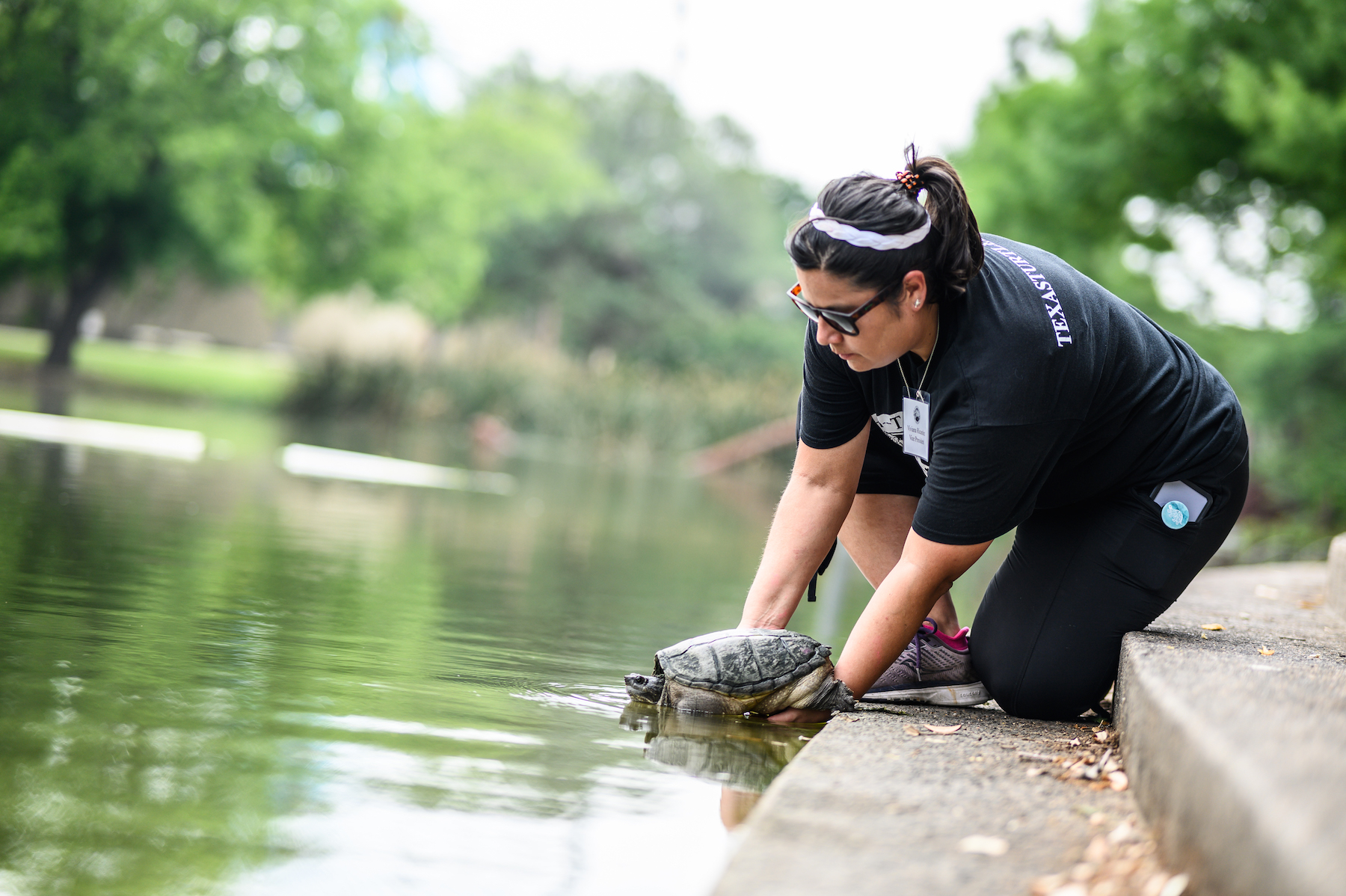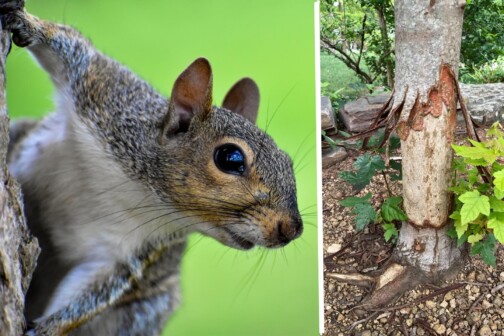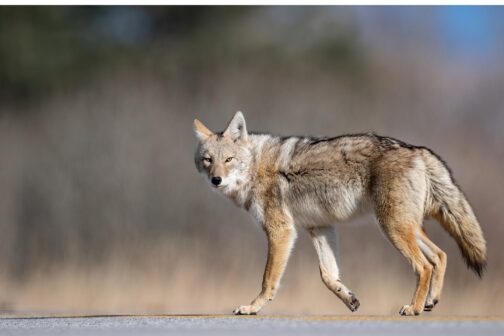Viviana Ricardez can’t remember a time where she didn’t love all animals. But she can pinpoint the moment where her affinity toward turtles began. When she was about 7 years old, she and her father were driving down the access road of Interstate 20 in Arlington when they spotted a red-eared slider, a native turtle to Texas, crossing the road. Ricardez was curious about the creature, so her father took her to a local Half Price Books to pick out books on herpetology, the study of amphibians and reptiles.
Ricardez never lost her love and respect for turtles. As an adult, she researched the natural history and ecology of native Texas species. She began volunteering and seeking out others who shared her passion. In 2007, Ricardez came across a website called TexasTurtles.org, run by Grand Prairie native Carl Franklin.
A professional herpetologist, Franklin has nearly 30 years of experience working with turtles. He’s worked for the Dallas and Fort Worth zoos and the University of Texas at Arlington. He is a wildlife specialist at Dallas Love Field Airport. He’s conducted scientific-collecting expeditions in the U.S., Central America, South America, and Indonesia. He’s been recognized by the International Herpetological Symposium for his research’s contribution to scientific breakthroughs and the discovery of new species. And, like Ricardez, Franklin has an overwhelming passion for turtles.
“If you have ever had a reptile encounter in your life, you probably have a positive or goofy memory of a turtle,” Franklin says, himself included. “In 1975, I was three years old, and my family was living in Oak Cliff when my dad brought home a snapping turtle to impress me. It worked.”
He launched the Texas Turtles website in 2007 to gather turtle information across the state. He shared his findings and answered questions—like “What do I do if I find a turtle on the road?”—from anyone who asked. He’d talk about the reptiles at various events and launched the Texas Turtles Facebook group in 2015.
Ricardez was intrigued by Franklin, so she followed his page for years. They finally met in 2016. She began working with Franklin in 2017, and Texas Turtles was able to expand its herping efforts, community events, and population studies. In 2019, Texas Turtles was officially registered as a 501c3 nonprofit, with Franklin as president and Ricardez as vice president. They were joined by Sal Scibetta and Heather Lowe, who both have extensive zoo and turtle experience, as secretary and treasurer, respectively.
Texas Turtles is devoted to the conservation and study of native turtles. The organization also provides outreach education so those in the Lone Star State can learn about what’s in their backyard, why their presence is important, and what dangers are challenging their very existence.
There are 36 turtle species native to Texas. Thanks to the state’s wide range of ecosystems, Texas is home to almost half of the country’s turtle diversity, including endangered species. Turtles are a key player in the Texas ecosystem, Ricardez says. And while there are several different factors challenging their existence, native turtles’ biggest threat is poaching.
Texas banned the commercial trade for trapping and selling several native turtle species in 2018, but there remains a large international demand for exotic pet turtles similar to elephants and tigers. Poachers use social media to find rare turtles, Franklin says, threatening endangered species and the ecology of Texas.
“Texas is also home to the rough-footed mud turtle, which is the rarest species of turtle in [Texas],” Ricardez says. “When you’re getting down to a population of 300 turtles, you must be proactive in your conservation efforts and public outreach.”
Since officially becoming a nonprofit in 2019, Texas Turtles has had fast momentum behind it, despite some COVID-related delays. Using social media— the organization’s Facebook group now has 12,000 members—Texas Turtles has been able to circumvent bureaucratic red tape and quickly reach out to people in the community.
People will send Texas Turtles a message if they come across a turtle where it shouldn’t be—on the road, for example—and need help getting the animal out of harm’s way quickly. Landowners will also reach out to the organization for help protecting a turtle nesting in their yard, whether it’s finding a way to keep it safe there or moving it to its proper terrain. This kind of community-driven science allows landowners and good turtle Samaritans, most of whom don’t have any scientific education or certifications, to have a stake in the wellbeing of these creatures.
“One of the private landowners helped us find an alligator snapping turtle nest, an extremely rare find,” Ricardez says, “by simply sending over a Facebook message and allowing us to come over and record the egg data in their backyard.”
In addition to rescuing turtles, the organization has made guest appearances on podcasts, YouTube videos, and even a 2020 episode of Animal Planet’s Brave the Wild. Last May, the group hosted “Texas Turtle Day at Fair Park” in the Leonhardt Lagoon, teaching folks about the local ecosystem and performing an annual population assessment. Texas Turtles is hosting a biannual turtle survey called “Snapperpalooza” this September, which will allow volunteers to study alligator snapping turtles in southeast Texas.
Part of Texas Turtles’ success is the nostalgia of regular Texans for their childhood turtle encounters, Franklin says. He points to the snapping turtle his father brought home years ago and Ricardez’s trip to Half Price Books. There’s goodwill toward the reptiles, too: ”If someone got bitten by a turtle, I don’t think they would vilify the turtle like they might with another animal.” The organization hopes to capitalize on this sentiment and grow attendance at their public events as well as awareness for turtles across the state.
Says Franklin, “People have a natural affinity to these unique creatures and want to see them flourish.”


